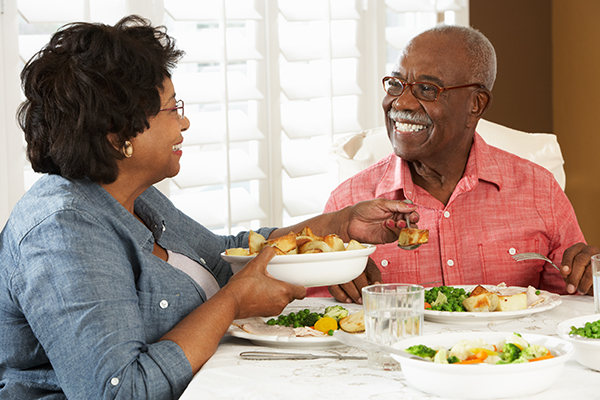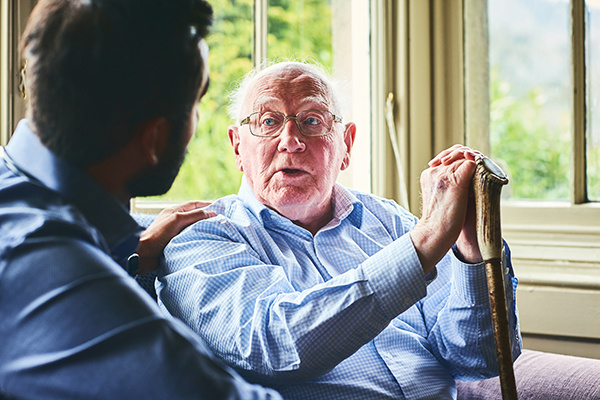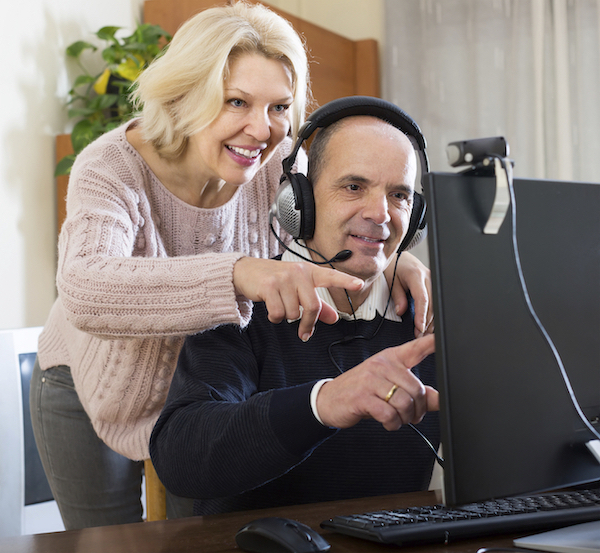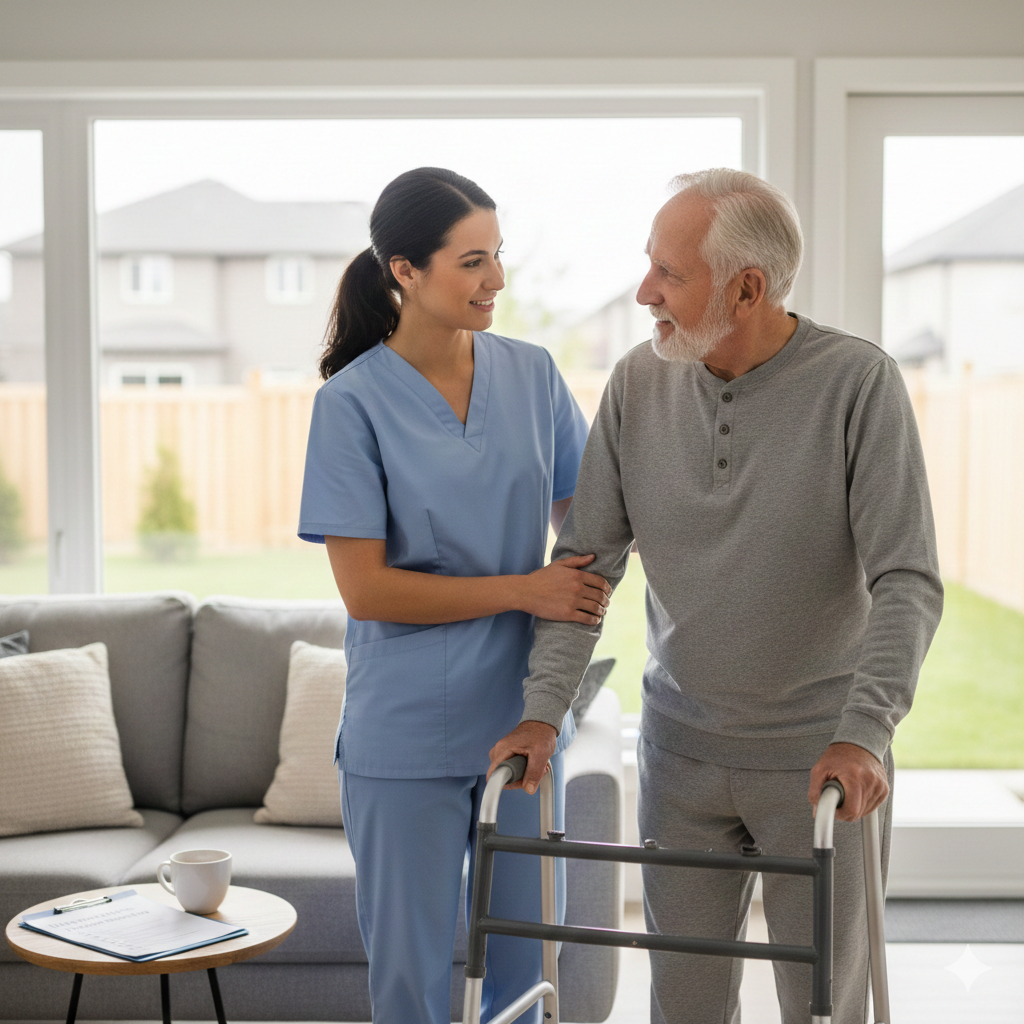Save Your Health! Flu and Pneumonia Tips As we grow older, our immune system naturally weakens, making it particularly important for seniors to take steps to prevent illnesses such as the flu and pneumonia. The tips in our FREE Save Your Health Flu and Pneumonia Tip Sheet can help! Learn prevention tips, signs to watch for that might indicate the flu versus a cold, signs to watch for that might indicate pneumonia and tips on knowing when to call the doctor. To download this helpful resource, simply complete this short form, and you’ll receive instant access to our Save Your Health Flu and Pneumonia Tip Sheet. For additional resources on senior health or to hire a professional in-home companion to help with medication reminders, light housekeeping and homemade, warm meals, contact Amy’s Helping Hands at 519-915-4370.

Windsor-Essex Care Management: How Low Blood Sugar Could Negatively Impact Senior Diabetics. The most up-to-date recommendations from the Endocrine Society about the elderly and diabetes are surprising, to say the least: lower blood sugar isn’t necessarily best. And for people who’ve been keeping a regimen of finger pricks, insulin injections, and careful monitoring of food consumed, this alteration might be rather tough to swallow. Known as de-intensification, geriatricians are now frequently taking the approach with the elderly that the advantages to be acquired by aiming for exact blood sugar control are not outweighing the health risks inherent with the aging process and illness. When A1c and glucose levels are held at really low levels in the elderly, it might possibly lead to a greater occurrence of hypoglycemia. With as many as one out of three seniors currently diagnosed with diabetes, these new guidelines are positioned to have an astounding effect on the treatment and management of the disease for older adults, requiring a shift in mindset for most. And not surprisingly,…

Dehydration in Seniors As summer temperatures and humidity soar, warm weather has the ability to increase the risk of dehydration. Not enough fluids can pose a serious health problem for anyone, but older adults are at particular risk. Why Seniors Are at Risk There are a few reasons why older adults are more susceptible to fluid and electrolyte imbalances. With age, our body’s ability to conserve water is reduced. This can make it more difficult to adapt to things like fluctuating temperatures. Additionally, the sense of thirst diminishes with age. By the time someone actually feels thirsty, essential fluids could already be extremely low. Certain medical conditions and medications can affect a senior’s ability to retain fluids. Individuals with dementia may forget to eat and drink, and in more advanced stages may have difficulty swallowing. Drugs like diuretics, antihistamines, laxatives, antipsychotics and corticosteroids can cause frequent urination that depletes water and electrolytes. Furthermore,…

The Information You Need to Know Before a Senior’s Next Doctor Visit On any given day, a doctor typically has about 20 patients to see – in addition to phone calls, paperwork, and other administrative duties. It leaves precious little time spent with each individual, which is why it’s crucial to maximize that time and ensure you clearly understand the outcome of each visit. At Amy’s Helping Hands, our care professionals provide transportation and accompaniment for seniors to medical appointments, and suggest the following strategy: Don’t be afraid to ask questions. With such a time crunch, your doctor may tend to relay information to you quickly, and it’s up to you to hit the pause button to make sure you clearly understand everything that’s being said and to speak up with any questions you may have, no matter how small or seemingly insignificant you may think they are. And, plan ahead for those questions. It can be hard to process everything being shared with you in the few minutes spent with the doctor. Preparing a list of questions in advance…

Related Paranoia in Seniors: How to Understand and Respond “I’m telling you, there’s a dog inside my closet! I hear it growling the whole night long. We’ve got to find its owner!” Listening to a senior family member express anxiety such as this that you know to be untrue is unsettling – however, not unusual. Your first impulse may well be to try to rationalize with the individual with a reply such as, “Nonsense! There’s not a chance a dog could possibly have gotten into your closet!” However, for several different reasons, this could be the least reliable technique to take care of irrational ideas and conduct in the senior population. Alternatively, at Amy’s Helping Hands, we recommend the following techniques in order to help bring back a sense of calm and wellbeing: 1. First off, schedule a physical with the senior’s physician. It’s essential to discover any cognitive impairment in order to make certain she or he receives proper treatment if required. There also may be prescription medication side-effects taking place.…

Windsor In-Home Care Offers Suggestion to Help with Parkinson’s Care from a Distance The days of extended families living together on neighboring plots of land are, sadly, a thing of the past in many cases. With loved ones spread further apart, it’s hard to provide the caring, hands-on support that older family members need, particularly when a chronic condition – such as Parkinson’s disease – adds to the concerns. The Michael J. Fox Foundation provides these tips on helping loved ones with Parkinson’s from afar: Get organized. Keep notes and details about medications, treatments, emergency contacts, and other aspects of your loved one’s care needs. Stay in touch. Make a point to touch base with a daily call, email, text, or Skype, depending on which option is easiest and preferred by your loved one. Check in with your loved one’s primary caregiver too, who may be feeling burdened by the stress of providing care. Arrange for help. Coordinate delivery of meals, assistance with yard work, or a professional home caregiver, such as Amy’s Helping Hands, to help…


















